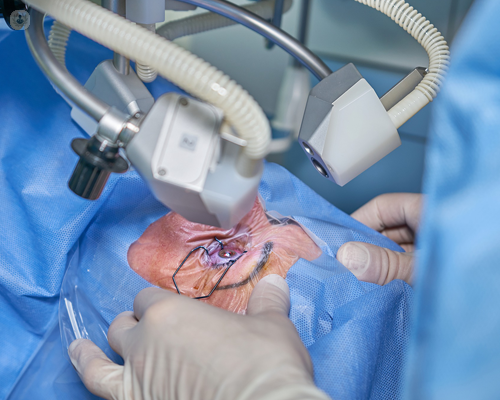What are cataracts?
Written in association with:Cataracts are a common age-related condition where the natural lens of the eye becomes cloudy, leading to blurred vision. Fortunately, modern cataract surgery with premium lenses offers effective solutions to restore clear vision. Leading consultant ophthalmologist Mr Ian Ambrose tells us all about it.

How is cataract surgery with premium lenses performed?
Before surgery, your ophthalmologist will perform a thorough eye examination and discuss lens options. Premium lenses, also known as multifocal or toric lenses, provide additional benefits beyond standard monofocal lenses.
The procedure is typically done under local anesthesia. You remain awake but relaxed. A tiny incision is then made in the eye. The cloudy lens is gently broken up using ultrasound (phacoemulsification) and removed. Instead of a basic replacement lens, a premium lens is inserted.
What are the different types of premium lenses?
- Multifocal Lenses:
- These lenses correct vision at multiple distances (near, intermediate, and far).
- Say goodbye to reading glasses!
- Some patients may experience halos or glare at night initially.
- Toric Lenses:
- Ideal for patients with astigmatism.
- Corrects both cataracts and astigmatism simultaneously.
- Precise alignment is crucial for optimal results.
- Extended Depth of Focus (EDOF) Lenses:
- A newer option that provides a continuous range of vision.
- Less risk of halos compared to multifocal lenses.
- Excellent for active lifestyles.
What are the main benefits associated with premium lenses?
There are a host of benefits of having premium lenses. They include:
- reduced dependence on glasses
- sharper vision
- improved night vision
- long-term investment
In terms of recovery from cataract surgery with premium lenses, what should I be aware of?
Most patients resume normal activities within a few days. Follow post-operative instructions diligently.


